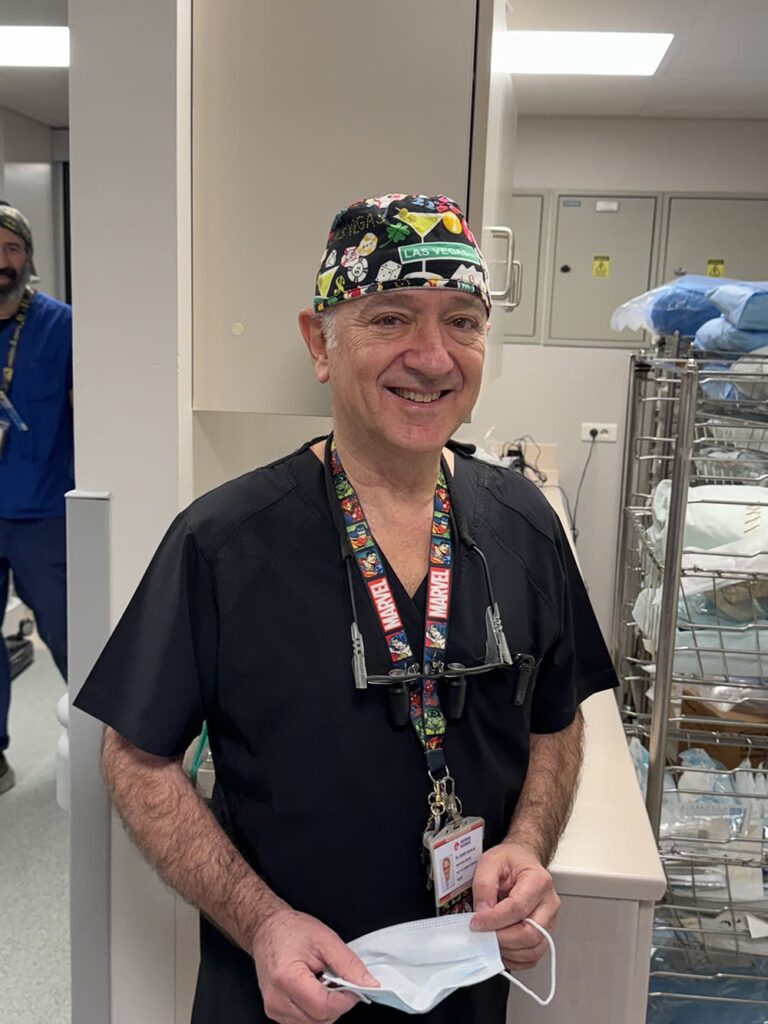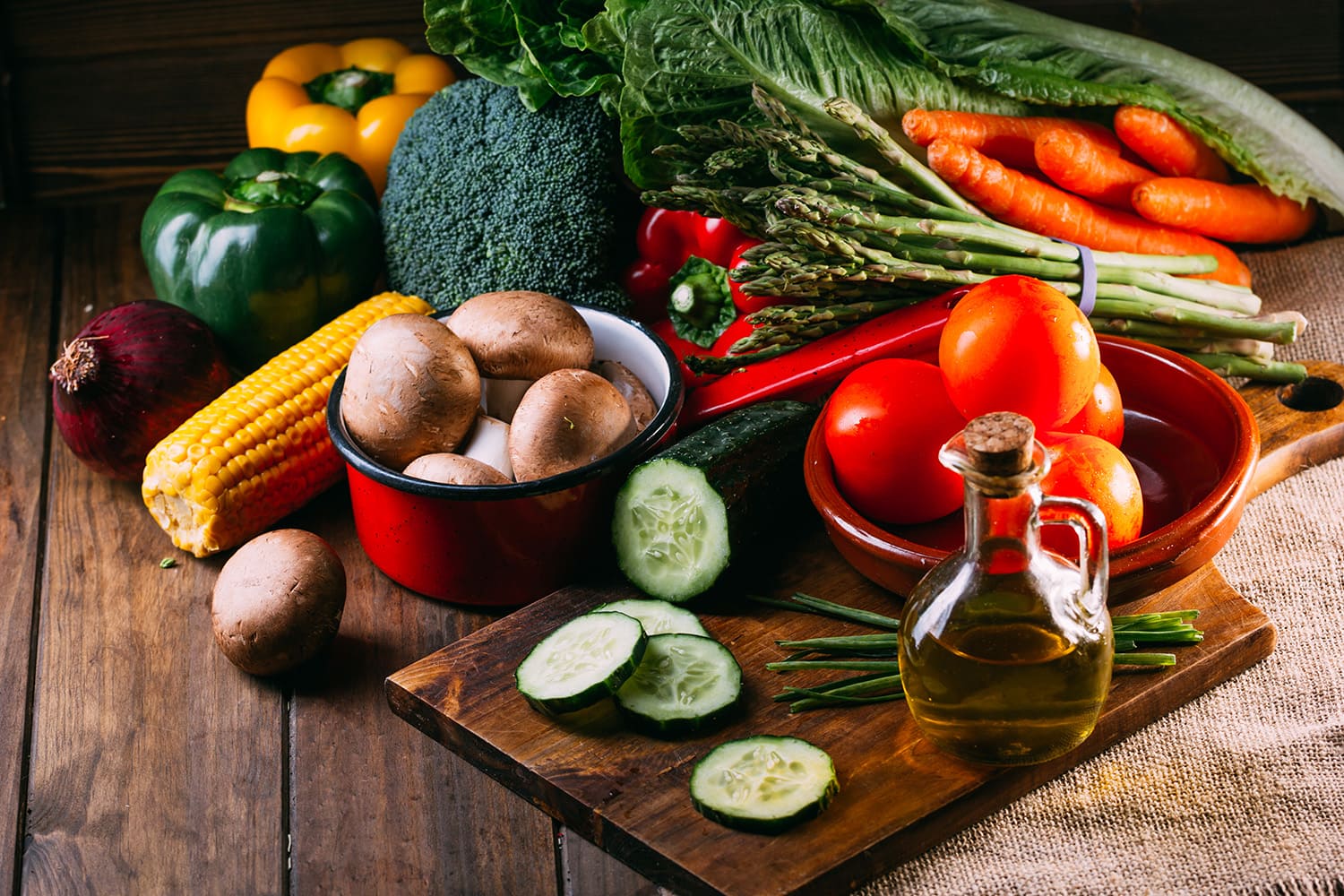Varicose veins are a common circulatory problem affecting millions of people worldwide, especially appearing in the legs as swollen and twisted veins. Due to weakened vein valves, blood pools in the veins, causing them to expand and become more visible under the skin. While genetic factors play a major role in the development of varicose veins, lifestyle choices, physical inactivity, and poor dietary habits can significantly contribute to their occurrence.
A healthy and balanced diet can make a remarkable difference in preventing varicose veins. Especially the Mediterranean diet is widely recognized for its positive effects on cardiovascular health, incorporating healthy fats, fiber-rich foods, and powerful antioxidants. Foods such as olive oil, fresh vegetables and fruits, whole grains, and omega-3-rich seafood can help support blood circulation and strengthen vascular health.
Moreover, excess weight and unhealthy eating habits are major risk factors for varicose veins. Above all processed foods high in salt and sugar can damage blood vessel walls, leading to inflammation and poor circulation. On the other hand, following a healthy eating pattern like the Mediterranean diet can support vascular health, improve blood flow, and reduce varicose vein symptoms.
In this article, we will thoroughly examine the relationship between the Mediterranean diet and varicose veins. Also we will explore which foods help prevent varicose veins, and how to create a daily nutrition plan. Additionally, you’ll learn how the Mediterranean diet contributes to blood circulation and which foods you should incorporate into your diet. If you are dealing with varicose veins or looking to prevent them, let’s discover how proper nutrition can help you maintain healthy veins.
What Is the Mediterranean Diet?
Principles of the Mediterranean Diet
The Mediterranean diet is based on the traditional eating habits of countries such as Italy, Greece, Spain, and Turkey. Its core principles include:
- Healthy Fat Consumption: Emphasizing healthy fats from sources like olive oil, avocados, and nuts.
- Vegetable and Fruit-Based Diet: A high intake of fiber, vitamins, and antioxidants from fresh produce.
- Whole Grains and Legumes: Choosing whole grains, lentils, and chickpeas over processed carbohydrates.
- Regular Fish and Lean Protein Intake: Preferring omega-3-rich fish and limiting red meat consumption.
- Avoiding Processed Foods and Sugars: Opting for natural sweeteners and fresh fruits instead of refined sugar.
Key Foods in the Mediterranean Diet
| Food Group | Examples |
| Healthy Fats | Olive oil, avocado, almonds, walnuts |
| Vegetables | Spinach, broccoli, tomatoes, peppers, zucchini |
| Fruits | Oranges, grapes, apples, bananas, strawberries |
| Whole Grains | Bulgur, brown rice, whole wheat bread |
| Protein Sources | Fish, chicken, eggs, yogurt, cheese |
| Legumes | Lentils, chickpeas, beans |
| Herbs & Spices | Turmeric, oregano, rosemary, garlic |
What Are Varicose Veins? Symptoms and Causes
Varicose veins develop when the vein valves fail to function properly, causing blood to pool in the veins, particularly in the legs.
Common Symptoms of Varicose Veins
- Swollen, twisted veins appearing blue or purple
- Swelling, heaviness, and pain in the legs
- Itching and discoloration of the skin
- Worsening discomfort after prolonged standing
Main Causes of Varicose Veins
- Genetics: If varicose veins run in your family, your risk is higher.
- Sedentary Lifestyle: Prolonged sitting or standing can impair blood circulation.
- Excess Weight: Being overweight increases pressure on veins, leading to varicose veins.
- Poor Nutrition: A diet low in fiber but high in sugar and unhealthy fats can negatively impact vein health.
🔗 For more information on varicose veins and treatment methods, visit: Prof. Dr. Semih Barlas
How Does the Mediterranean Diet Affect Circulation and Vascular Health?
The Mediterranean diet can help protect vascular health, prevent varicose veins, and alleviate symptoms. Here are three key benefits of this diet for blood circulation:
- Regulates Blood Flow
Omega-3 fatty acids found in fish improve vein flexibility and enhance circulation. - Provides Antioxidant and Anti-Inflammatory Effects
Vegetables, fruits, and herbs helps reduce inflammation in blood vessels. - Strengthens Blood Vessels
Foods high in flavonoids (such as grapes and citrus fruits) help strengthen veins and reduce varicose vein formation.
🔗 For more information on the positive effects of a healthy diet on varicose veins, click here.

Mediterranean Diet Recommendations for People with Varicose Veins
Individuals with varicose veins should focus on the following foods:
Foods to Include:
✅ Olive oil
✅ Leafy greens (spinach, lettuce)
✅ Citrus fruits (lemon, orange)
✅ Omega-3-rich fish (salmon, sardines)
✅ Whole grains and legumes
Foods to Avoid:
❌ Processed foods high in sugar
❌ Excessive salt intake
❌ Fried foods and trans fats
The Mediterranean Diet’s Role in Supporting Varicose Vein Treatment
Scientific research shows that the Mediterranean diet plays a supportive role in managing varicose veins. Additionally studies conducted in Greece and Italy suggest that individuals following this diet have stronger vascular health and also a lower risk of developing varicose veins.
This is due to:
- The high fiber intake, which improves gut health and prevents constipation. (constipation can increase pressure on veins).
- Low sodium levels in the diet, which help reduce swelling (edema).
- Flavonoid-rich foods that strengthen blood vessels.
Sample Mediterranean Diet Plan for Varicose Veins
| H3: Daily Menu Example Meal | Example Menu |
| Breakfast | Olives, whole wheat bread, tomatoes, cucumbers, cottage cheese, walnuts |
| Snack | Almonds, walnuts, and a handful of grapes |
| Lunch | Grilled salmon, olive oil-based vegetables, and whole grain bulgur pilaf |
| Snack | Yogurt with flaxseeds |
| Dinner | Lentil soup, arugula salad, and roasted vegetables |
Conclusion and Expert Recommendation
In conclusion the Mediterranean diet is not only beneficial for weight control but also supports vascular health and alleviate varicose vein symptoms. In conclusion by incorporating Mediterranean diet principles, you can minimize the risk of varicose veins and protect your leg health.
💡 For personalized nutrition plans and more information, visit Prof. Dr. Semih Barlas
Recommended Internal and External Links
🔗 Internal Links:
🔗 Suggested External Links:

